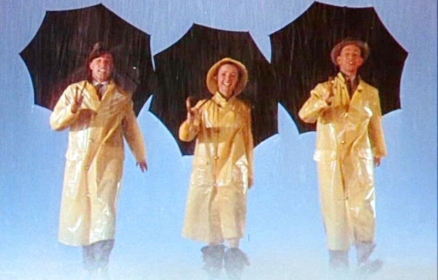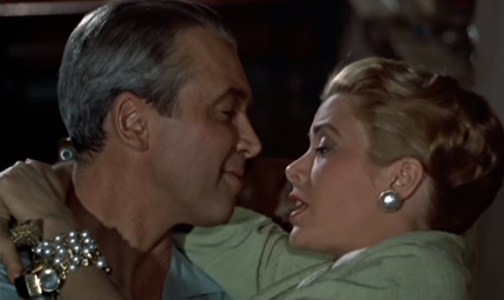
7 Women is an oddity that nevertheless deserves a more prominent reputation. Here we have the inauspicious final film of John Ford, becoming the capstone to a career spanning decades and plenty of classics.
However, there’s no John Wayne in this picture nor western panoramas. Still, it sticks with you and delivers a considerable drama chock full of immense potential in such a short span of time.
The story takes place in a Christian mission situated in China near the Mongolia border. The year is 1935. Though the territory has some protection, there is still a world of feudal violence brooding around this stronghold of Christian virtue.
The religious subtext alone has enough thematic intrigue to keep the story continuously compelling. On top of this, you have the rather unusual circumstances (both then and now) of having an entire cast packed with top-tier female performers.
What sets the picture apart is how it becomes a kind of battleground for morality as people of different breeds chafe against each other, further exacerbated by the harrowing backdrop all around them.
Miss Agatha Andrews (Margaret Leighton) runs her compound with puritanical virtue that would be off-putting if there were anyone to stand up against her. Instead, all her cohorts take her pharisee-like fervor benevolently because they share faith in the same God.
Among them is the right-hand Miss Argent always prepared to pay her services. Sue Lyon is able to subvert her image as a youthful seductress in Lolita for that of an angelic missionary, who is taken under Andrew’s wing. She leads the orphans in renditions of “Jesus Loves Me” and is a cloistered young woman of genuine faith.
Eddie Albert feels strangely cast as a teacher — especially since it’s the Green Acres era — but bless his soul, he’s still as wonderful as ever. He could do it all, and he’s the perfect counterpoint to all the women in his stead, including his peckish wife, the pregnant Florrie (Betty Field).
Their lives could very easily continue in relative peace if not for the arrival of a lady doctor named Cartwright (Anne Bancroft as a last-minute replacement for Patricia Neal). It becomes apparent all too quickly she is the utter antithesis of all that Miss Andrews aspires for her immaculate city on a hill to stand for.
They immediately have it out over everything from cigarettes at a dinner table (ironic for a doctor who is supposed to care for the human body) and the liberal use of coarse language unbecoming a woman. They very much represent two distinct worldviews, and they have an impasse. Dr. Cartwright won’t agree to be shipped out; she has a job to look after Florrie’s baby, while her employer isn’t about to let her camp become a house of sin.
Her protests are final, noting the good doctor will never fit into “a Christian community,” and she takes this as a personal affront, asking the impressionable Emma if she wants to live in Dr. Cartwright’s world.
Admittedly, her points aren’t entirely unfounded as their new apothecary proclaims spiritually is dead because she’s never seen God take care of anyone. It’s the pragmatic truth as she sees it but to such an ardent zealot as Miss Andrews, these are blasphemous words.
While Ford never strikes me as a persistently religious figure, he was raised Catholic and his pictures from 3 Godfathers and The Quiet Man to 7 Women do provide portraits of different figures of the faith. This is arguably the most robust conversation, a heavy indictment of holier-than-thou morality versus actual sacrificial lives lived out of love.

If all this back and forth is playing out in the foreground, the background begins to heat up with word of marauders ravaging the territory. Miss Andrews’ own hypocrisy is laid to bear when missionaries from differing denominations (among them Anna Lee) are begrudgingly allowed asylum.
At least Dr. Cartwright is a straight shooter. It’s when the real crisis strikes, true character is always revealed. Our suspicions are confirmed as the real heroes come out of the woodwork.
When the compound is overtaken by cholera and drastic measures are in order, the Dr. takes charge for the sake of everyone. Then, the local Chinese garrison flees, leaving them as sitting ducks. It’s inevitable. The feared Warlord Tunga Khan will soon be on their doorstep.
What we don’t know are the results of this impending invasion. To its credit, 7 Women does not spare us from the senseless killing; it is a horrible feeling to know no life is sacred in a film. Those who are spared are locked away to watch the bloodshed.
Mike Mazurski and all his Mongolian cronies are the film’s one obvious blind spot. It’s a moment where the film acts its age. And yet even underneath this apparent flaw, you have this strange counter-story as if in an alternate reality Woody Strode, former UCLA star, is going head to head against Mazursky who was himself a professional wrestler. It’s this weird subtext that’s strangely riveting as they battle for control of this rowdy assemblage of bandits.
With time, Miss Andrews becomes completely unhinged spouting off scripture and losing all pretense of a peaceful, righteous figure. She finally gets put in her place by one of her closest companions. (“What right have you to shout abuse behind our celibate walls”). She sees the Pharisee for who she is.
Again, it is the heathen — the woman of the world — who shows wells of affection when it comes to protecting the weak and the helpless and even those who despise her guts. There is another verse pertinent to her character, redeemed as she is, in her unapologetic profaneness. “There is no greater love than to lay down one’s life for one’s friends.” The actions are what speak on her behalf.
In her final hour, Ford christens Bancroft with what should be remembered as an iconic doorway shot all her own because she knows what she has done, sacrificing herself for everyone, ready to drink the cup of wrath.
She goes out as fiery as she came in. In fact, Anne Bancroft kills it, despite Ford christening her with the rather unflattering moniker of “The Maid of Monotone.” This movie would lose so much fury without her husky heart and soul at its core.
The 7 Women is a fitting final twist in an illustrious career. In a mountain of westerns revolving around men’s men where only a few sturdy lasses on par with Maureen O’Hara were ever able to break in, Ford goes and makes a film populated with women.
What’s even more rewarding is how much there is to cull through. While it might have unceremoniously become the bookend of Ford’s career, it’s no less of an achievement. Taking stock of everything, it’s a criminally underseen gem that adds yet another compelling contour to the old coot’s already complex career in Hollywood.
Once asked in an interview about his favorite picture of Jean Renoir, Ford always the eloquent elocutionist responded curtly, “I like all of them.” We certainly can attribute this to the usual irascibility of the director, but it seems like a fitting way to consider his own work.
While pictures like Stagecoach and The Searchers get their due, even an offering like 7 Women, seemingly minor, taken as part of a broader career, is still full of Ford himself. “If you’ve seen one, you’ve seen them all” could not be further from the truth.
With Ford, it’s like each individual picture is giving you another side of him; artistically and thematically he is a part of these movies. The images speak on his behalf. All the better for someone so notoriously difficult to pin down. Look at his films if you want to know the man.
4/5 Stars







 It required quite the journey to make it to this film, starting out with a different joker entirely. My introduction to comedian Joe E. Lewis happened because of the late, great Jerry Lewis. Revisiting his life and work I made the discovery that the comedian changed his name to avoid confusion with two men. First, Joe Louis the stellar boxer of the 1930s and then Joe E. Lewis the comedian.
It required quite the journey to make it to this film, starting out with a different joker entirely. My introduction to comedian Joe E. Lewis happened because of the late, great Jerry Lewis. Revisiting his life and work I made the discovery that the comedian changed his name to avoid confusion with two men. First, Joe Louis the stellar boxer of the 1930s and then Joe E. Lewis the comedian. Joe: Today’s gonna be a holiday.
Joe: Today’s gonna be a holiday.
